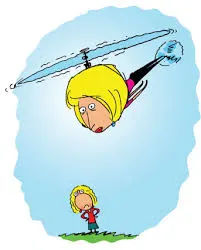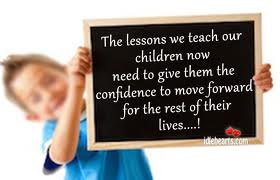Circa 2004, I was given the opportunity to coach my oldest daughter’s soccer team. Okay, okay, I was frantically freaking out on the phone when the in-town soccer director was telling me if I did not coach, there would be no coach for my team and did I want that for my daughter? <Insert Jewish Mother Guilt Trip feelings RIGHTHERE>
Despite my many years of playing soccer (I played for five years up until 1987, when I was forced to pick ONE sport per season at Leominster High School and I chose to pursue my love of running instead), I felt unprepared to coach a team. Playing a sport and excelling at it is quite different than actually coaching a team of kids! Yikes, would I remember the rules of soccer to teach a bunch of young ‘uns? Would I have the patience to make it through a season? Would the parents burn me at the stake for not making their wee ones soccer prodigies in a mere eight weeks? <Where’s the toilet when you need it?>
Yes, I reluctantly said yes! I quickly learned that teaching children a game is more like herding wild cats; finding creative ways to engage them and not simultaneously lose them. <Whoa, six year old attention spans are really short-lived.> Whatever do you do with the child that finds more interest in the passing butterfly than the incoming soccer ball aimed precisely at her head?
As a mother, I realize I was given more *time* with my young children by coaching their sport. Instead of sticking my nose in a book along the sidelines or gossiping with the gaggle of other mothers, I was on the field engaging with not only my child, but countless other children who I became immensely fond of. I discovered early on that my soccer field was often times a safe place; a place away from troubles at home or problems at school. My grassy field was time out of a hectic day where the littles on my roster would laugh, cry, fall down and get back up again and again.
My field became a place where bullies would try to enforce their behavior, but instead, these children were given boundaries by me that there would be no tolerance on MY field and yet, reassurance that I would unconditionally be their coach regardless. The persistent buggers would be greeted with warnings and followed up with consequences; and the recipients of the taunting actions felt safe knowing this field belongs to them as well.
With each passing season, my confidence as a coach grew and my ability to gauge the level of appropriate skills and expectations expanded. What started as an in-town team of co-ed six year olds has carried on through the present day with coaching the girls’ high school summer teams. Imagine the opportunity to watch these girls grow, blossom, develop, struggle, persevere and continue on in the sport that they love!
A few years ago, my son’s team needed a coach and once again, I found myself heavily recruited to take on the task of managing a bunch of pre-teen boys. My bowels shuddered with fear: I knew I was able to coach girls but to be a positive influence on a bunch of tween boys? I doubted myself. Highly.
Coaching boys proved to be very much different than coaching girls. The game remains the same, but the players, boy, the players were nearly a separate species. For example, the girls will play on and on and on – even with injuries. I swear that girls will continue to play with a broken bone! About a third of the way into my first fall season with my boys and I had three players walk off during practice crying.
CRYING? THERE’S NO CRYING IN SOCCER! WHAT….THE……..
My first instinct was to tell these young gentlemen to suck it up and get back out on the field. Deep breath, ask my assistant to cover and I would soon find myself engaged in conversation with the crying young man about something outside of soccer that was bothering him. A little pep chat, a little mental health break on the sidelines and a freedom to jump back in when he was ready seemed to ease the water works. My field HAD to be a safe place for any number of emotions for any of these kids.
Boys…..they show their anger. Whoa. Time outs. Yes, they apply to tweens. Parents were notified when I was forced to reprimand and deliver consequences. Most times, parents were supportive and encouraged my on field discipline. Some occasions, however, they were not. Parents. Parents.
Parents. Yes, you parents add an entirely different dimension to the world of kids’ sports. Early on in my coaching, I was positive that my local town soccer organization was rife with *these* parents. Over the years, I witnessed that *these* parents are throughout all sports. As a coach, I was forced to re-evaluate my own perspective as a parent of children who play sports. Holy cow.
Parents have their own unique personality traits, much the same as some of those I saw (see!) on the field. In the latter portion of my tenure coaching, I found myself not only setting expectations for my team players but setting boundaries and expectations for my team parents!
If I had the opportunity to sit you parents down and tell you one thing – everything you say has some type of impact on your child(ren). EVERYTHING. When you tell your child they are not good enough, I see it when they walk out on the field with their body language screaming their lack of confidence. When you tell your child they are the best thing since Lionel Messi or Cristiano Ronaldo (when they are *clearly*not), I see it when they practice and when they play; as well as trying to give them additional tools to become a better player for this TEAM sport.
As a coach, my goal has been to make sure your child comes off a season a better player than when they first started that particular season. Being a better player not only includes a stronger skill set on the field to engage in more strategic and technical play; but also having an arsenal of tools to be a better human being.
As a parent, my goal has been to make sure my children have expectations and goals to rise up to. Each child has a different personality that requires a specific set of expectations for them. I refuse to coddle my children and give them false allusions of grandeur; but I also refuse to set them up for failure from the beginning.
When you tell your child that his/her team stinks and will never beat a particular team, you are stripping your child from the very get-go of the tools they need to march out and prepare themselves for their game. The likelihood of your child’s team may be slim-to-none of winning, but from a coach’s perspective trying to instill hope after you have stripped it away is a heart wrenching experience.
We must enable kids with the opportunities to *always* go out and give their best efforts regardless of the wagered outcome. Many of these experiences now will translate into your child’s life ahead – ultimately in how they handle situations in their careers, their marriages and more. Empower them NOW.
My tenure as coach has allowed me to see the impact of many of life’s challenges on your children:
- I have seen the impact of divorce;
- I have seen the impact of abuse;
- I have seen the impact of helicopter parenting;
- I have seen the impact of neglect; and
- I have seen your children thrive.
Ten years later, with countless seasons of soccer under my belt – as a mother and as a coach, I reflect with a certainty that the in-town director gave me a gift way back then. Yes, the director gave me a priceless opportunity to expand my own life adventures, but to have an impact on the lives of young children in their otherwise hectic worlds.
My role as coach has been far from perfect. However, I do hope that a couple of kids will remember “Coach Rebecca” fondly and know I had a positive impact on their young lives. Your role as parent is also that of a life coach! Remember your words and your actions may also have a positive impact on your children’s lives from the sidelines of their favorite sports. Let them hear these words from me AND from you: “I believe in you!”




August 19, 2014 at 5:31 pm
Rebecca,
Great blog. I was a Girl Scout leader for eight years and feel the same way. I saw young girls become young women over those years. I feel it was a gift to spend that time with not only my daughter but the other girls as well.
LikeLike
August 22, 2014 at 5:55 pm
They’ll remember you.
LikeLike